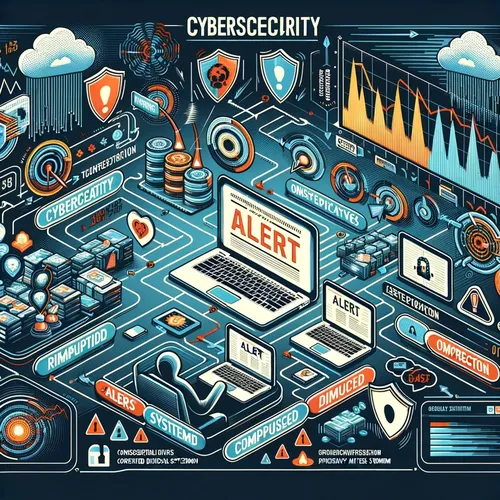Hacked Calendars, Breached Cities: China's Cyber Blitz Unleashed!
- Author
- Quiet. Please
- Published
- Sat 31 May 2025
- Episode Link
- https://www.spreaker.com/episode/hacked-calendars-breached-cities-china-s-cyber-blitz-unleashed--66351523
This is your Red Alert: China's Daily Cyber Moves podcast.
Red Alert, folks—this is Ting coming to you live on May 31st, 2025, with the latest cyber drama straight out of China’s digital playbook. The past week has been a whirlwind, so buckle up as I take you through the most critical cyber moves targeting the U.S.—no fluff, just the hack facts.
Let’s kick off with the biggest splash: On the evening of May 27, a ransomware blitz crippled Sheboygan, Wisconsin. Nearly 70,000 folks impacted, city services went dark, and the digital panic button was smashed. This wasn’t your average ransomware: It had all the hallmarks of a sophisticated, Chinese-speaking threat actor, targeting municipalities across the Midwest. Fast-forward a day, and CISA—yes, the Cybersecurity and Infrastructure Security Agency—along with the FBI, dropped an urgent alert: Municipalities nationwide should brace for more of these attacks, especially those using Cityworks software. Imagine local governments scrambling to dig out fax machines—yeah, it was that analog for a hot minute.
Meanwhile, Chinese APT groups—Advanced Persistent Threats, for my non-cyber nerds—such as APT40, Mustang Panda, and the ever-busy APT41, have dialed up their assault. According to Trellix, APT attacks have skyrocketed by 136% since October. The big twist? APT41’s not just fishing for passwords; they’re exploiting fresh vulnerabilities like ninja coders, hopping over the usual phishing traps. Think less “You’ve won a free cruise!” and more “Surprise, your cloud storage just sprung a leak.” Government institutions are still enemy number one for these groups, but the telecom and tech sectors are getting battered too—up 92% and 119% in attacks, respectively.
Now, let’s talk about the Google Calendar hack just two days ago. A China-linked crew weaponized what you thought was a boring calendar invite—embedding malicious payloads, zapping straight into government inboxes. Research labs, government bureaus, and a few defense contractors suddenly had a lot more on their schedule than budget meetings.
The U.S. Defense Intelligence Agency’s fresh threat assessment lays it out: China’s not only stealing secrets for economic and military muscle, they’re actively pre-positioning inside critical infrastructure—think electrical grids, water, comms. If Beijing thinks conflict is on the horizon, they’re primed to flip the switch. That’s the digital equivalent of parking tanks at the border.
Timeline snapshot: May 27—ransomware hits Sheboygan. May 29—Google Calendar attacks go public. Today—CISA and FBI urge urgent patching, incident response teams work overtime, and every SOC (Security Operations Center) is caffeine-fueled and on edge.
Potential escalation? If a Taiwan flashpoint or South China Sea incident heats up, expect these “quiet” network footholds to turn into chaos by design—shutdowns, data wipes, maybe even kinetic repercussions. For now, every IT lead in America is patching systems, isolating infected machines, and running tabletop “what-if” drills.
Message of the week: Assume breach, stay patched, and don’t trust your calendar invites—because in 2025, even your meetings might be trying to hack you.
For more http://www.quietplease.ai
Get the best deals https://amzn.to/3ODvOta
